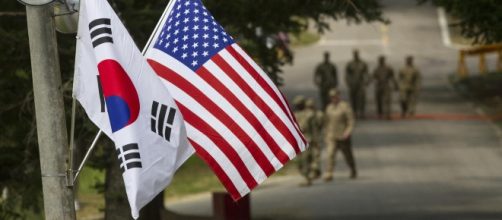The United States and South Korea have set aside negotiations on the termination of the bilateral Trade Deal for now. The two countries, which are currently on the same side of the coin on the increasingly aggressive North Korea, need each other for them to be able to maintain the geopolitical stability in the East Asian region.
Trade deal talks hanging
According to Reuters, the news about the trade deal was disclosed by an unnamed official in the Trump administration. While the trade deal could still be terminated, it is no longer a priority for Trump as officials fear continuing the negotiations could alienate a strong United States ally in Asia.
Before North Korea started threatening an attack on the United States, Trump campaigned on re-evaluating multiple trade deals with countries all over the world. When he first came to power, Trump was talking to some of his advisers as he felt that the deal was disadvantageous to the U.S.
The U.S.-Korea Free Trade Agreement (KORUS), which was put in place by former president Barack Obama, was, in fact, a key criticism made by Trump against his predecessor for the trade deficit of almost $28 billion that the U.S. incurs. President Donald Trump also criticized Canada and Mexico as the two neighbors are making it difficult for his administration to renegotiate the North American Free Trade Agreement (NAFTA).
South Korea anticipates another ICBM
CNN reports that the government of South Korea has received intelligence that its northern neighbor may be releasing another intercontinental ballistic missile (ICBM) on September 9. Prime Minister Lee Nak-yon, in a meeting with other ministers, has urged “a special measure” so that North Korea will be stopped in its tracks.
South Korea has received the final parts of the Terminal High Altitude Area Defense (THAAD) system from the United States on Thursday as the country prepares for a possible missile attack. The system is an anti-ballistic missile defense mechanism that can protect against ICBMs, developed initially for the Iraq War in 1991.
The arrival of the remaining THAAD missile interceptors was met with protests and riots.
The U.S. Forces Korea saw rallies from anti-United States protesters in their base in Seongju, a city 300 kilometers from the capital of Seoul. THAAD is criticized by many protesters due to the implications its use will have on environmental, health and peace stability in the Korean peninsula.


